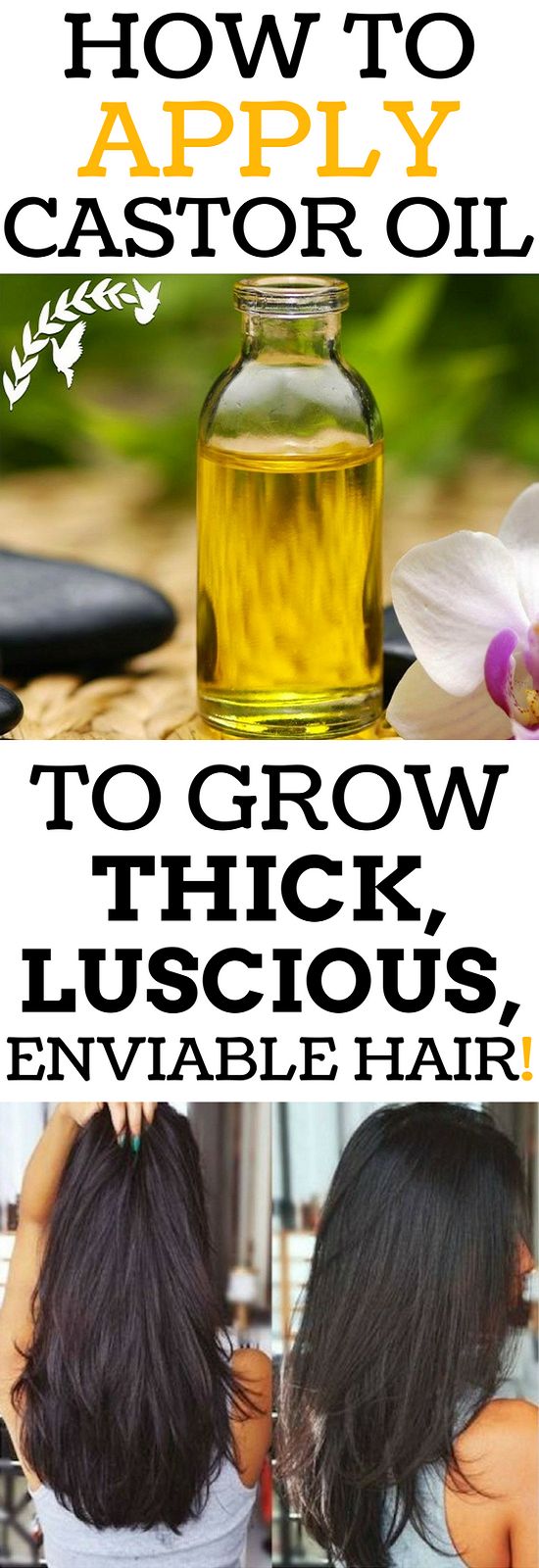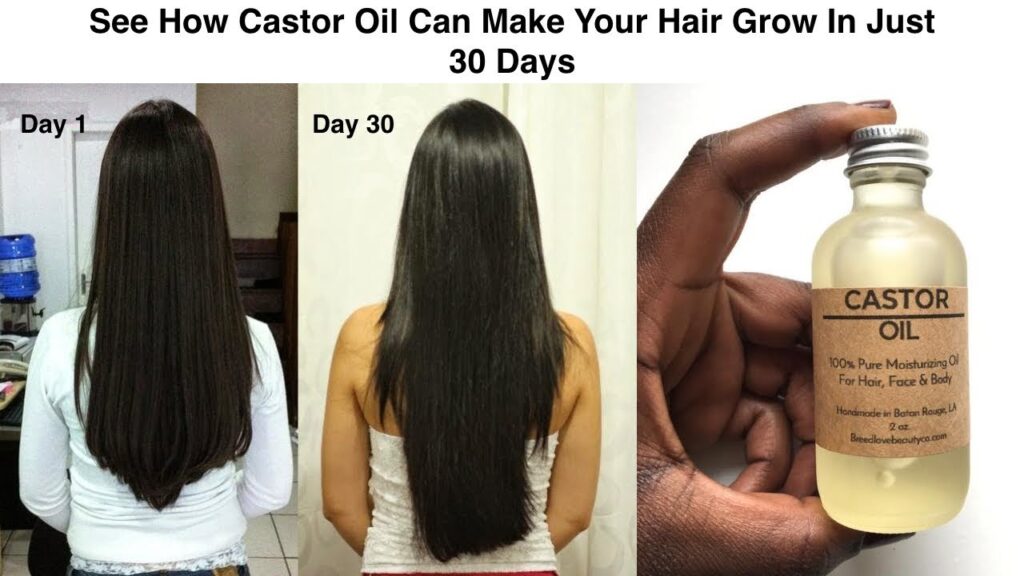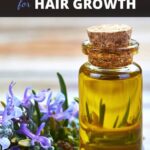The quest for luscious, healthy hair is a timeless pursuit, spanning cultures and generations. From ancient remedies to modern scientific breakthroughs, people have continuously sought solutions to combat hair loss, promote growth, and enhance overall hair health. Among the myriad of treatments available, castor oil has emerged as a popular natural remedy, often touted for its potential to stimulate hair growth. But does this thick, viscous oil truly live up to the hype? This is a question many ponder, especially those experiencing thinning hair, slow growth, or simply desiring a fuller, more vibrant mane.
The use of castor oil for hair dates back centuries, with historical records indicating its application in ancient Egypt and other civilizations for various medicinal and cosmetic purposes. Its purported benefits stem from its unique composition, particularly its high concentration of ricinoleic acid, a monounsaturated fatty acid believed to possess anti-inflammatory and antimicrobial properties. These properties, proponents argue, can contribute to a healthier scalp environment, which in turn can foster hair growth. However, separating anecdotal evidence from scientifically validated claims is crucial when evaluating the efficacy of any hair growth treatment, including castor oil.

The current landscape of hair care is saturated with products promising miraculous results. From shampoos and conditioners to serums and supplements, consumers are bombarded with options, each claiming to be the ultimate solution. In this context, the appeal of castor oil lies in its natural origin, affordability, and accessibility. It offers a seemingly simple and inexpensive alternative to more complex and potentially costly treatments. Yet, it’s essential to approach the use of castor oil with realistic expectations and a critical eye, considering both its potential benefits and potential drawbacks.
This comprehensive exploration aims to delve into the science behind castor oil and its purported effects on hair growth. We will examine the evidence, both anecdotal and scientific, to determine whether castor oil truly promotes hair growth, strengthens hair, or improves overall hair health. We will also discuss the proper application methods, potential side effects, and alternative treatments to provide a well-rounded understanding of this popular natural remedy. Ultimately, our goal is to equip you with the knowledge necessary to make informed decisions about incorporating castor oil into your hair care routine.
The Science Behind Castor Oil and Hair Growth
Understanding whether castor oil genuinely promotes hair growth requires a close examination of its chemical composition and potential mechanisms of action. The primary component of castor oil is ricinoleic acid, which accounts for approximately 90% of its fatty acid content. This unique fatty acid is believed to be responsible for many of the purported benefits of castor oil, including its anti-inflammatory and antimicrobial properties. However, the direct link between ricinoleic acid and hair growth is still under investigation.
Ricinoleic Acid and Its Potential Benefits
Ricinoleic acid’s potential benefits for hair growth are primarily attributed to its anti-inflammatory and antimicrobial properties. Inflammation of the scalp can contribute to hair loss and hinder hair growth. By reducing inflammation, castor oil may create a more favorable environment for hair follicles to thrive. Similarly, antimicrobial properties can help combat fungal or bacterial infections on the scalp that can also contribute to hair loss. However, it’s important to note that these are indirect benefits, and more research is needed to confirm the direct impact of ricinoleic acid on hair follicles.
Some studies have suggested that ricinoleic acid may also stimulate the production of prostaglandin E2 (PGE2), a lipid compound that can promote hair growth. However, these studies have primarily been conducted in vitro (in test tubes) or on animal models, and the results may not necessarily translate to humans. Further research is needed to determine whether castor oil can effectively stimulate PGE2 production in the human scalp and whether this translates to significant hair growth.
Castor Oil’s Effect on Scalp Health
A healthy scalp is essential for healthy hair growth. Castor oil is often used to moisturize the scalp and alleviate dryness and flakiness. Its emollient properties help to lock in moisture, preventing the scalp from becoming dry and irritated. This can be particularly beneficial for individuals with dry scalp conditions like dandruff or seborrheic dermatitis. However, it’s important to use castor oil sparingly, as excessive application can lead to buildup and potentially clog hair follicles.
The anti-inflammatory properties of castor oil may also help to soothe an irritated scalp. Conditions like eczema or psoriasis can cause inflammation and itching, which can disrupt hair growth. By reducing inflammation, castor oil may help to alleviate these symptoms and create a more favorable environment for hair follicles. However, it’s crucial to consult with a dermatologist for proper diagnosis and treatment of underlying scalp conditions.
Scientific Evidence and Research Studies
While anecdotal evidence abounds regarding the benefits of castor oil for hair growth, scientific evidence is limited. Few well-designed studies have specifically investigated the effects of castor oil on hair growth in humans. One small study published in the *Journal of Cosmetic Science* found that ricinoleic acid could enhance hair luster. However, this study did not directly assess hair growth. More rigorous research is needed to determine the efficacy of castor oil for promoting hair growth, increasing hair thickness, or reducing hair loss.
Furthermore, the method of application and the type of castor oil used can also influence the results. Some people prefer to use Jamaican black castor oil, which is processed differently and may contain ash, which some believe enhances its benefits. However, there is no scientific evidence to support this claim. The optimal application method and the most effective type of castor oil for hair growth remain unclear.
Real-world examples show varying results. Some users report significant improvements in hair growth and thickness after using castor oil regularly, while others experience no noticeable difference. These variations could be attributed to individual differences in genetics, scalp health, and hair care practices. It’s important to remember that what works for one person may not work for another.
How to Use Castor Oil for Hair Growth
If you’re considering using castor oil to promote hair growth, it’s essential to understand the proper application methods and potential precautions. While castor oil is generally considered safe for topical use, it’s important to perform a patch test before applying it to your entire scalp to check for any allergic reactions. Additionally, it’s crucial to use castor oil sparingly to avoid buildup and potential clogging of hair follicles.
Choosing the Right Type of Castor Oil
There are several types of castor oil available, including cold-pressed castor oil, Jamaican black castor oil, and hydrogenated castor oil. Cold-pressed castor oil is generally considered the purest form, as it is extracted without the use of heat or chemicals, which can degrade its beneficial properties. Jamaican black castor oil is processed differently, with the beans being roasted and then ground before pressing. This process gives it a darker color and a smoky aroma. Hydrogenated castor oil is a wax-like substance that is often used in cosmetics and personal care products.
For hair growth, cold-pressed castor oil or Jamaican black castor oil are often recommended. However, there is no scientific evidence to suggest that one type is superior to the other. Ultimately, the choice depends on personal preference. Consider trying both types to see which one works best for your hair and scalp.
Application Techniques and Frequency
The most common method of applying castor oil for hair growth is to massage it directly into the scalp. This can help to improve blood circulation to the hair follicles, which may promote hair growth. To apply castor oil, start by warming a small amount in your hands. Then, gently massage it into your scalp using circular motions. Focus on areas where you are experiencing thinning or hair loss.
You can also apply castor oil to the lengths of your hair to moisturize and strengthen it. However, castor oil is very thick and viscous, so it’s best to dilute it with a lighter oil, such as coconut oil or olive oil. This will make it easier to apply and prevent buildup.
The frequency of castor oil application depends on your hair type and scalp condition. If you have dry hair and scalp, you may be able to use it more frequently, such as two or three times a week. If you have oily hair and scalp, you may only need to use it once a week or even less often. Start with a small amount and gradually increase the frequency as needed.
Potential Side Effects and Precautions
While castor oil is generally considered safe for topical use, it can cause side effects in some individuals. The most common side effect is allergic reaction, which can manifest as skin irritation, itching, or rash. To avoid this, perform a patch test before applying castor oil to your entire scalp. Apply a small amount to a discreet area of skin, such as your inner arm, and wait 24 hours to see if any reaction occurs.
Other potential side effects of castor oil include diarrhea and stomach cramps if ingested. Castor oil is a potent laxative and should only be taken orally under the supervision of a healthcare professional. Avoid getting castor oil in your eyes, as it can cause irritation. If you do get it in your eyes, rinse them thoroughly with water.
Some individuals may find castor oil to be too heavy or greasy for their hair. This can lead to buildup and make the hair look dull and lifeless. If this is the case, try diluting castor oil with a lighter oil or using it less frequently. Expert insights suggest that mixing castor oil with rosemary essential oil may enhance its benefits for hair growth, but more research is needed to confirm this claim.
Alternatives to Castor Oil for Hair Growth
While castor oil is a popular natural remedy for hair growth, it’s not the only option available. There are several other treatments, both natural and medical, that may be more effective for certain individuals. It’s important to explore different options and find what works best for your specific needs and hair type.
Other Natural Oils and Remedies
Several other natural oils have been shown to promote hair growth and improve hair health. These include:
- Coconut oil: Moisturizes the hair and scalp, reduces protein loss, and protects against damage.
- Argan oil: Rich in antioxidants and fatty acids, nourishes the hair and scalp, and adds shine.
- Olive oil: Moisturizes the hair and scalp, strengthens hair follicles, and promotes hair growth.
- Rosemary oil: Stimulates hair growth, improves blood circulation to the scalp, and reduces hair loss.
- Peppermint oil: Stimulates hair growth, increases blood flow to the scalp, and refreshes the scalp.
In addition to natural oils, other natural remedies that may promote hair growth include:
- Aloe vera: Soothes the scalp, reduces inflammation, and promotes hair growth.
- Onion juice: Rich in sulfur, which may stimulate hair growth and improve blood circulation to the scalp.
- Green tea: Contains antioxidants that may protect hair follicles from damage and promote hair growth.
Medical Treatments for Hair Loss
For individuals experiencing significant hair loss, medical treatments may be necessary. These treatments include:
- Minoxidil (Rogaine): A topical medication that stimulates hair growth and reduces hair loss.
- Finasteride (Propecia): An oral medication that blocks the production of DHT, a hormone that can contribute to hair loss.
- Hair transplant: A surgical procedure that involves transplanting hair follicles from one area of the scalp to another.
- Laser therapy: A non-invasive treatment that uses low-level lasers to stimulate hair growth.
It’s important to consult with a dermatologist or hair loss specialist to determine the underlying cause of your hair loss and to discuss the most appropriate treatment options. Data suggests that medical treatments are often more effective than natural remedies for treating significant hair loss, but they may also have more potential side effects.
Lifestyle Factors Affecting Hair Growth
In addition to specific treatments, lifestyle factors can also play a significant role in hair growth and overall hair health. These factors include:
- Diet: A balanced diet rich in protein, vitamins, and minerals is essential for healthy hair growth.
- Stress management: Chronic stress can contribute to hair loss. Finding healthy ways to manage stress, such as exercise, yoga, or meditation, can help to promote hair growth.
- Proper hair care: Avoid harsh chemicals, excessive heat styling, and tight hairstyles, which can damage the hair and lead to breakage.
- Sufficient sleep: Getting enough sleep is essential for overall health, including hair health.
By addressing these lifestyle factors and incorporating healthy habits into your daily routine, you can create a more favorable environment for hair growth and improve the overall health and appearance of your hair. Remember that consistency is key, and it may take several months to see noticeable results. Comparisons between individuals who adopt healthy lifestyle habits and those who don’t often show a significant difference in hair health and growth.
Summary and Recap
In conclusion, while castor oil has been touted for its potential to stimulate hair growth, the scientific evidence supporting this claim is limited. The primary component of castor oil, ricinoleic acid, possesses anti-inflammatory and antimicrobial properties, which may indirectly benefit hair growth by promoting a healthier scalp environment. However, more rigorous research is needed to determine the direct impact of castor oil on hair follicles and hair growth in humans.
The use of castor oil for hair dates back centuries, and anecdotal evidence suggests that it can improve hair growth, increase hair thickness, and reduce hair loss. However, these anecdotal reports are not always reliable and may be influenced by individual factors such as genetics, scalp health, and hair care practices. It’s important to approach the use of castor oil with realistic expectations and a critical eye.
If you choose to use castor oil for hair growth, it’s essential to use it properly. Choose a high-quality castor oil, such as cold-pressed castor oil or Jamaican black castor oil. Apply it sparingly to your scalp and hair, and massage it gently into the scalp to improve blood circulation. Be sure to perform a patch test before applying it to your entire scalp to check for any allergic reactions. Avoid using castor oil excessively, as it can lead to buildup and potentially clog hair follicles.
Remember that castor oil is not the only option for promoting hair growth. Several other natural oils and remedies, such as coconut oil, argan oil, olive oil, rosemary oil, and peppermint oil, may also be beneficial. For individuals experiencing significant hair loss, medical treatments such as minoxidil, finasteride, hair transplant, and laser therapy may be necessary. It’s important to consult with a dermatologist or hair loss specialist to determine the underlying cause of your hair loss and to discuss the most appropriate treatment options.
Ultimately, the key to healthy hair growth is a combination of factors, including a balanced diet, stress management, proper hair care, and sufficient sleep. By addressing these lifestyle factors and incorporating healthy habits into your daily routine, you can create a more favorable environment for hair growth and improve the overall health and appearance of your hair.
Consider these key takeaways:
- Castor oil may indirectly benefit hair growth through its anti-inflammatory and antimicrobial properties.
- Scientific evidence supporting the direct impact of castor oil on hair growth is limited.
- Proper application and precautions are essential when using castor oil.
- Alternative natural remedies and medical treatments are available for hair loss.
- Lifestyle factors play a significant role in hair growth and overall hair health.
Frequently Asked Questions (FAQs)
Does castor oil really make hair grow faster?
While many people swear by castor oil for faster hair growth, there’s limited scientific evidence to definitively prove this. The ricinoleic acid in castor oil might improve scalp health and blood circulation, potentially creating a better environment for hair follicles. However, individual results can vary, and it’s not a guaranteed solution for everyone. It’s best to manage expectations and consider it as a potential aid rather than a miracle cure.
How often should I use castor oil on my hair?
The frequency of castor oil application depends on your hair type and scalp condition. If you have dry hair and scalp, you might be able to use it 2-3 times a week. If you have oily hair, once a week or even less often might be sufficient. Start with a small amount and adjust based on how your hair and scalp respond. Overuse can lead to buildup and greasy hair.
Can castor oil help with hair loss?
Castor oil may help with hair loss indirectly by promoting a healthier scalp environment. Its anti-inflammatory and antimicrobial properties can address scalp conditions that contribute to hair loss. However, it’s unlikely to be a complete solution for significant hair loss caused by genetic factors or hormonal imbalances. In such cases, consulting a dermatologist for medical treatments is recommended.
Is Jamaican black castor oil better than regular castor oil for hair growth?
There’s no conclusive scientific evidence to prove that Jamaican black castor oil is superior to regular castor oil for hair growth. Jamaican black castor oil undergoes a different processing method, which involves roasting the beans and adding ash. Some believe this enhances its benefits, but this hasn’t been scientifically validated. The choice between the two often comes down to personal preference.
Are there any side effects of using castor oil on my hair?
Castor oil is generally safe for topical use, but some people may experience allergic reactions, such as skin irritation, itching, or rash. It’s always a good idea to do a patch test before applying it to your entire scalp. Additionally, castor oil can be quite thick and heavy, which can lead to buildup and greasy hair if used excessively. Diluting it with a lighter oil can help mitigate this issue.



